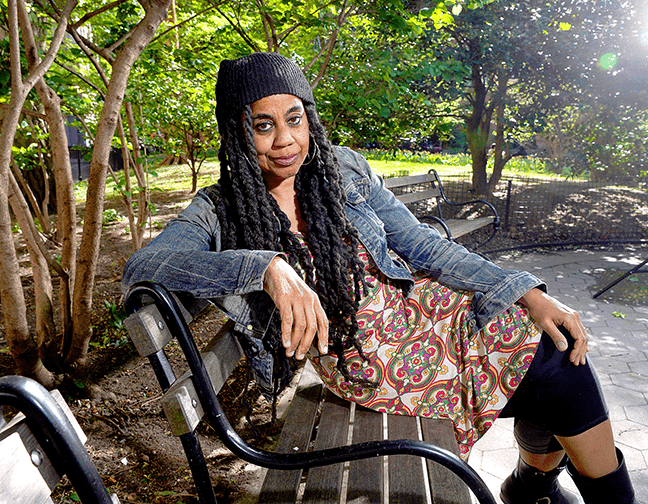
The pandemic affected everyone in ways large and small, but for those tasked with helping us laugh through the saddest year in recent memory, it was an odd mix of concern, precaution and silliness. Being in production wasn’t always comfortable, but the six actors who gathered remotely for The Envelope’s Comedy Roundtable were driven by the need to create in a time of anxiety.
“People needed to laugh,” says Wanda Sykes, who stars in the new Netflix family series “The Upshaws.” “I know I needed it.”
But how do you shoot a television comedy and remain safely 6 feet apart? Well, you don’t, says Robin Thede, who created and stars in “A Black Lady Sketch Show” on HBO Max. Instead, “you test six times a week and make sure your cast does not have COVID, and you don’t go anywhere, and you make them vow to go to work and home, and that’s it. I took six months to learn everything I could, and with HBO and all the doctors and everything, we just figured out how to put it up safely.”

From an acting perspective, going back to work was heartening, says Michiel Huisman of HBO Max’s “The Flight Attendant.” “It was strange to pretend that everything was sort of back to normal in front of the camera, right? But also kind of nice?”
“I think that it saved us, especially the actors,” added Thede. “To be free and be these crazy characters and just to be with each other. And luckily with the nature of the show, everything is strange, so we can kind of use that. But I can’t imagine somebody shooting a serious drama during the height of the pandemic.”
“What I have found so wonderful about coming back right now is the sense of community,” noted Jane Krakowski of Apple TV+’s “Dickinson.” “Like, seeing you guys, it’s almost a sense of needing an audience again. Just having our crew chuckle at something, it makes you feel, ‘Oh, thank God, we can still do this.’ People still want to laugh.”
The Envelope Showrunners Roundtable gathers the creators of ‘Bridgerton,’ ‘Dickinson,’ ‘Hacks,’ ‘The Handmaid’s Tale,’ ‘Genius: Aretha’ and ‘Small Axe’ to talk television today.
Anna Konkle, co-creator and star of Hulu’s “PEN15,” and Kenan Thompson, longtime “Saturday Night Live” regular and now star of his own sitcom, NBC’s “Kenan,” also joined in the May 2 conversation to discuss what it takes to be funny during a pandemic and why it’s so important for their comedies to reflect the absurdity of our times.
Excerpts of their conversation here have been edited for length and clarity.
Jane, “Dickinson” is a 19th century period comedy, and you play Emily Dickinson’s mother ...
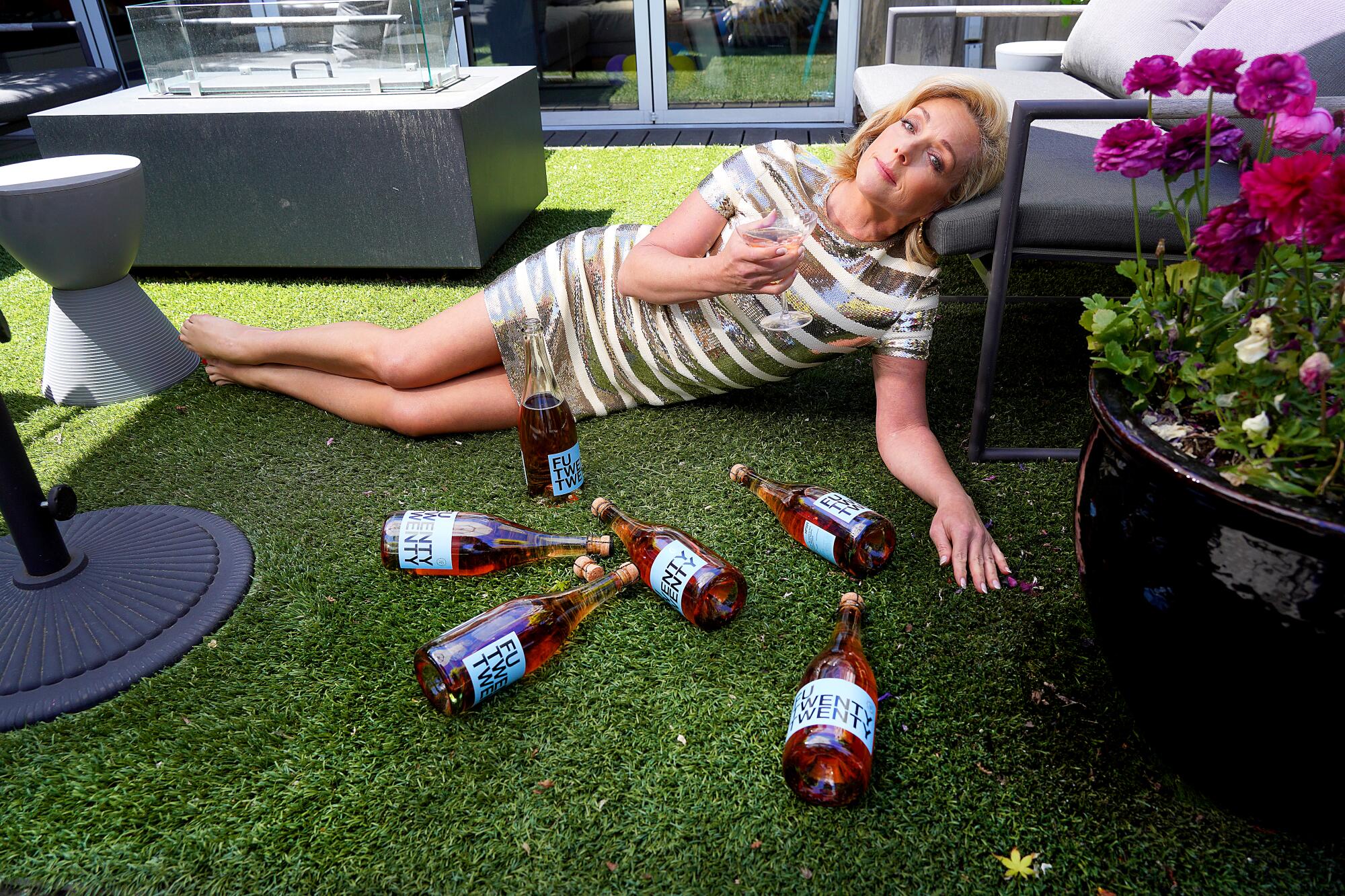
Jane Krakowski: Her hotter, younger millennial mother, I think it is.
Anna Konkle: That’s right.
Robin Thede: Let them know.
Noted! Was it hard to be funny in a constricting corset, a constricting era for women?
Krakowski: It was part of the reason I wanted to really do it. It almost didn’t matter how it ended up coming out. I was just so excited about the creative adventure that it was going to be and about what [showrunner] Alena Smith was trying to do. How deliberately anachronistic it was. It was a very different type of show for me.
Kenan, you were also mixing things up by moving between “SNL” and your own family sitcom, “Kenan.”
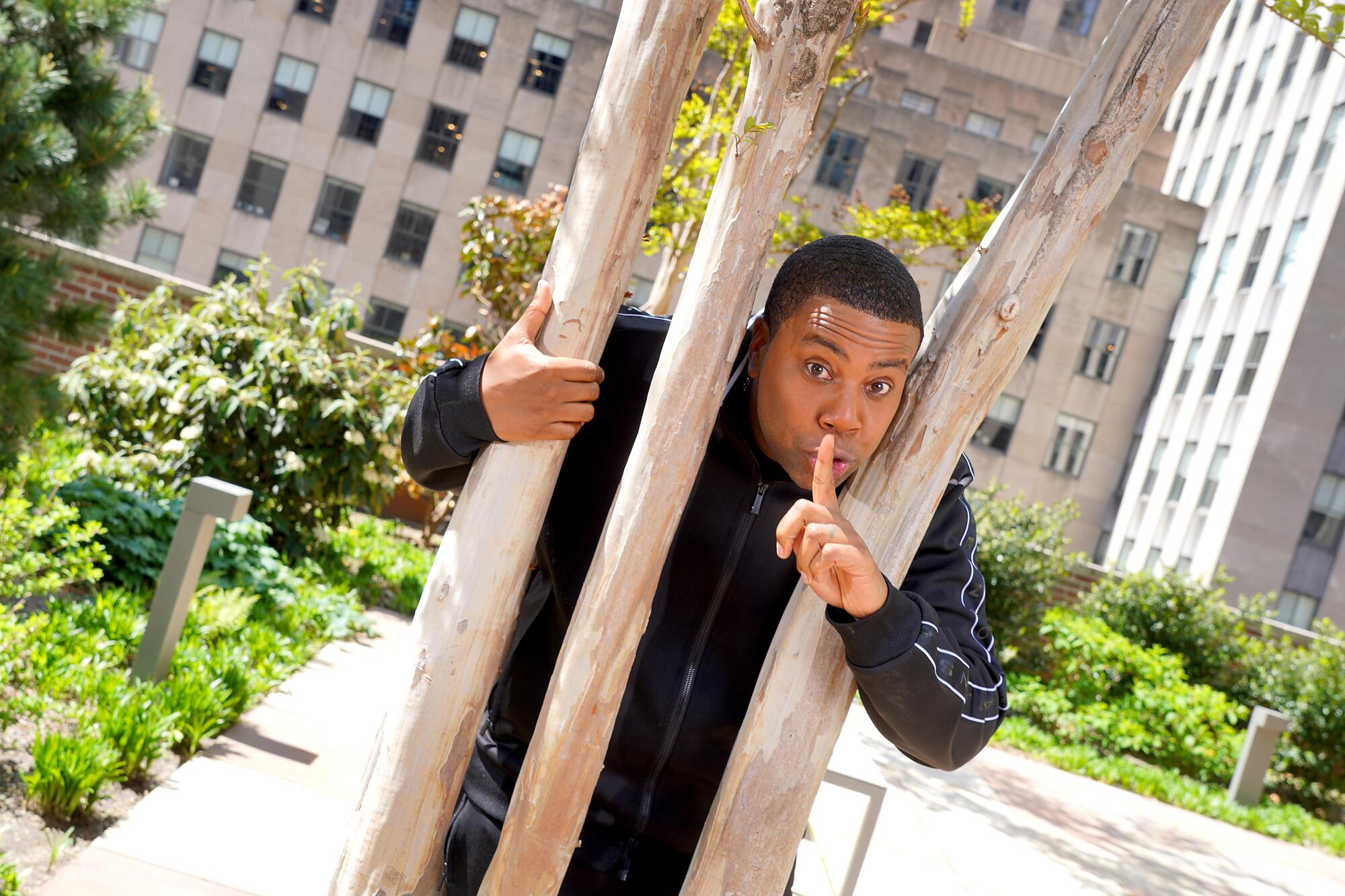
Kenan Thompson: It’s very surreal. Most of the time as an actor, you just want to keep working, so it doesn’t matter where you show up that day. You just know you have something to do ... and you hope that it’s funny. So whether it’s sketch or a long, drawn-out scene, I still have to study it and tackle it and use the same kind of muscles to break down the rhythms of it. It’s an interesting challenge to go back and forth after shooting a week’s worth of a sitcom and then do a live show and then hop back to it.
Wanda Sykes: With all that traveling, you must have a TSA PreCheck, huh?
Thede: Listen, are you flying private or commercial — how is this working? I know you’re not on no commercial flight every week.
Thompson: No, but I know people. That’s all I can say, I know people.
Anna, with “PEN15,” you and co-creator Maya Erskine relive the awkwardness of middle school by playing 13-year-olds ... surrounded by a cast of actual 13-year-olds. How have you pulled that off for two seasons?

Konkle: When I’m around the kids that are 13, I feel like the most wrinkled alien in the entire world. But they make it easy; they treat me like one of the kids. In terms of the show, when we first were talking about making it, it was, like, eight or nine years ago, and that’s how long it took to make, because nobody wanted to make the show, for obvious reasons. We thought that the stories at 13 ... [sexual experimentation], the trauma that was happening, which we both found devastating and funny, was an area that we weren’t supposed to talk about. We thought that because there wasn’t the right mechanism to tell it. It was mostly either indie films telling R-rated stories or Nickelodeon stuff about a 13-year-old that was always really happy. That wasn’t our experience. So we thought if we play these characters and we try to do it earnestly, we can tell the array of stories that we’re really interested in. The surprise has been that other people think it’s funny.
It’s hysterical, but there’s real pain there too.
Konkle: There’s a dark sense of humor there. And I don’t know if any of you relate to feeling like this, but sometimes with comedy, I feel like I laugh at the wrong times.
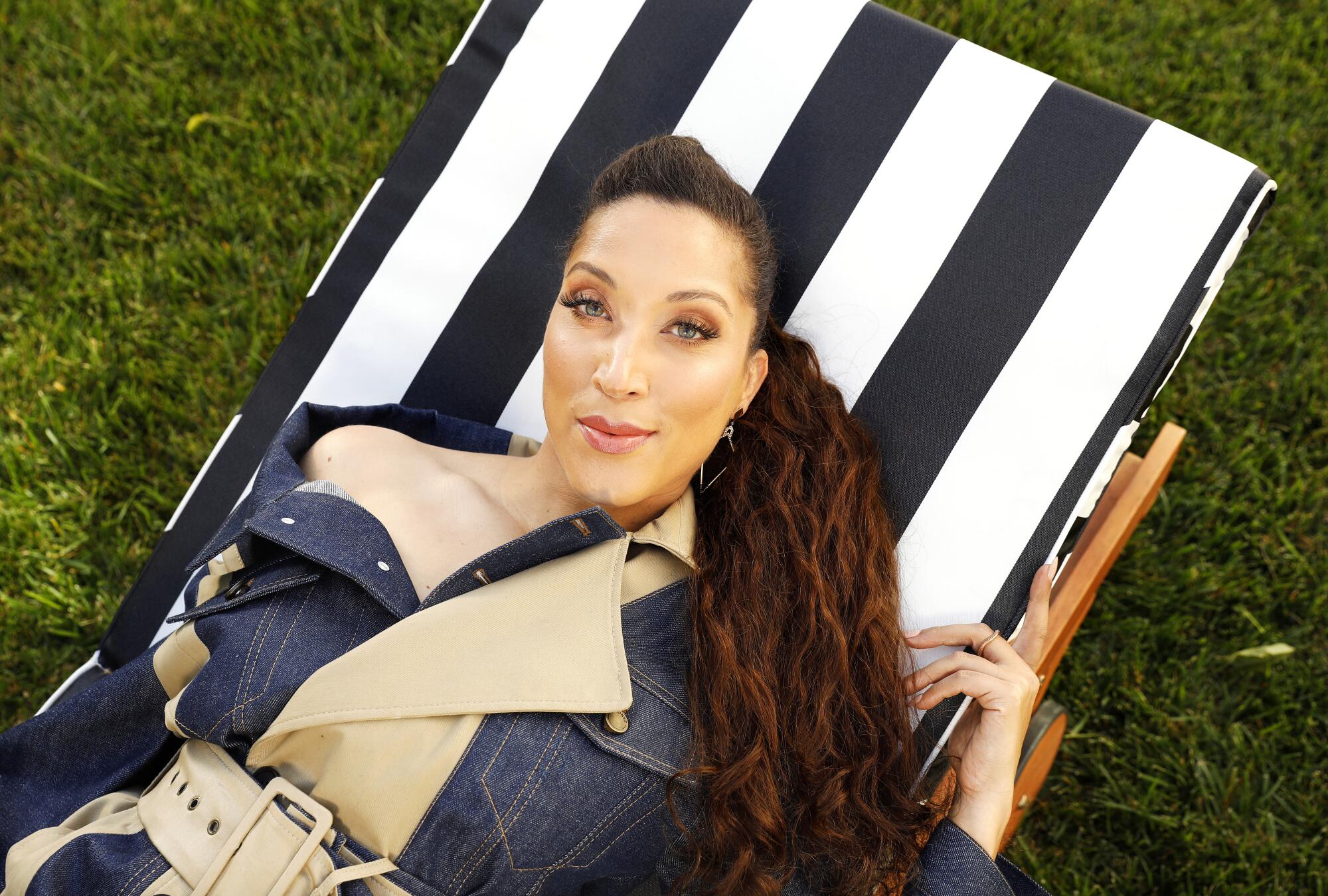
Thede: Yeah, if somebody falls down and hurts themselves, I laugh way too hard.
Konkle: Same, exactly! The sadder, the darker material that wasn’t even intended to be funny, that’s good.
Michiel, in “The Flight Attendant,” you play a mutilated dead guy for most of the series. Dark comedy is quite a switch from your previous outings on “Game of Thrones” and “Treme.”
Michiel Huisman: I’m so honored to be part of this group, because I really barely have been able to dip my toes in the world of comedy. But I love comedy. And I always thought it would be so fun to be a part of a comedy show, and so “The Flight Attendant” came, and I thought it was maybe the good kind of mix. It definitely wants to be a dark comedy, but it’s also really trying to deal with some heavier subjects like addiction and loss and trauma. So I thought maybe this was a good one for me. But then in the end, I don’t know if I was funny.
Thompson: You were.
Thede: We can validate, yes.
Huisman: I just got killed, and that was funny.

Thede: But then you had to keep talking after you were dead. A dead body talking and bragging to someone is very funny.
Konkle: Do you find a comedic scene is scarier than something that’s more dramatic?
Huisman: Yes, because it’s a whole new thing. When I was listening earlier to Kenan and you were talking about how you’re approaching a scene and you were finding the rhythm, I thought, “Oh, yeah.” Maybe that’s just not really my first instinct, to find the rhythm of it. I try to think about the character, but I noticed on set that Kaley Cuoco, who has done a lot of comedy, is so much more in tune with the rhythm. I really had to get used to that. It also meant directors telling me to just keep going and hurry up. Just say it. Please.
Thede: When we have additional drama actors on my sketch show, I find that they speak very slowly and deliberately. And other actors are constantly like, “All right, pick it up. Get to the joke.” It’s interesting. [Comedians] don’t waste a lot of time thinking .... If we wasted time to think, we’re going to miss the punchline.
Krakowski: I spent two television shows, I’m not sure how many years in entirety, in the rhythms of Tina Fey and Robert Carlock, which was a gift of comedy. It’s the highest form of great joke writing that I have ever gotten the chance to do. And the jokes are plenty on the page. And so you get into that rhythm. I knew where Tina and Robert were going to land or what they were going for.

It was very exciting, exhilarating and scary to say yes to [“Dickinson”], something that was such a different comic rhythm than what I had done. Our show, I don’t want to say dramedy ... but it’s a bit of a dramedy. There are many scenes that are completely heartfelt and sincere. The challenge for me is trying to find where you go in and out of it in our show. Where you can be stripped bare and be completely honest, which are some of my favorite scenes to play because they are so different than what I’m used to doing. Then where you want to still put in the joke, because it’s what I love to do. I want to find the comedy wherever I can find it.
Is it important for series comedy to be topical now?
Thede: Back in the day, even 10 years ago, you could make a comedy that was really farcical and really silly and people didn’t need to relate to it. But today if your comedy is not relatable in some sort of way, people don’t want it. Even with these wild sketches we do, we have to ground it some way. We have this sketch where it’s just black women seeing each other in a courtroom, and we’ve done two different versions of it. It’s just a joyful sketch. It’s one of our most watched. It’s about the experience of what happens when you go into this professional environment and see a bunch of black women there, working in a space where you don’t expect them to be. That’s something that’s super relatable to my audience. It has to feel authentic and grounded in some way. And then the audience will let you go to a really crazy place.

Wanda, “The Upshaws” is one of the few modern sitcoms I can think of featuring a working-class Black family, which seems critical right now.
Sykes: I give credit to [co-creator] Mike Epps. He said, “Look, I want to do a show about a Black working-class family — I want to do Black ‘Roseanne.’” And it hit me. I was like, “Damn, you know what? What happened to those families? Where are the working-class families?” When we got to the late ‘80s, ‘90s, it was all Black people in suits with good jobs. It wasn’t that working-class family. But it is important [to see], because that’s how most of America lives.
I remember growing up, and the shows that I loved to watch (“Good Times,” “What’s Happening!!”). The conversations that they were having on those shows, we were having at our kitchen table. I really wanted to create a show unapologetically for Black, working-class people. But white people are free to watch it. I’m sure you’ll love it. It’s very relatable.
Thede: The quality of the banter between you and Mike, even from the clips, was giving me “Sanford and Son” energy. I haven’t seen this in a long time. It’s just two powerhouses going back and forth. It’s everything we need.
Some of the most creative and daring comedy today is coming from women. “PEN15” is a great example.

Konkle: The stories that have been some of the scariest have innately been more female-driven stories. I wasn’t as in tune or didn’t want to be as in tune with the idea that I have a lot of shame about being a woman. And that’s just internalized. So we deal with that in the show. Maya was so incredible to bring in an autobiographical piece of her story of masturbating, and growing up learning that that was gross, and we were sluts but guys talking about it at the lunch table was funny and in the movies was funny.
And that’s been the same since I was 13, in year 2000. And to be in her 30s and be like, “I don’t know, should we put this in the show?” It really keeps lighting up that side of my brain where I’m like, “What else have I been conditioned to think is not funny, or is gross, or whatever?” The reality is, it’s just as funny as “Something About Mary’s” [semen] in the hair [scene] that I watched when I was that age, so we keep pushing ourselves to do that. For me it was new and scary to share those personal, shame-y stories.
Thompson: What she just said was so powerful. I want to encourage you to continue telling those stories that make you feel uncomfortable, because that just lit me up inside, to hear your perspective about things that aren’t the norm, or haven’t really been told. I beg that you continue to do what makes you uncomfortable.

Inspiration often comes from the oddest places but rarely from one’s comfort zone.
Thompson: I was so surprised to see the guy from probably the scariest thing I’ve ever seen on television on a comedy roundtable. Your performance in “The Haunting of Hill House” is just so good ... the drama and natural acting ability. And to hear your real voice now, I’m like, “Oh, he’s a brilliant actor,” because you were in character without question.You were that guy. You were going through those experiences with your family, and it was totally believable and it scared the crap out of me. It’s really impressive.
Huisman: Thanks, Kenan. That means so much. When we were talking about keeping a scene fresh or making it feel like it’s the first time that you’re saying these lines, it reminded me of a British director I once had the pleasure of working with, Mike Newell. An old-school director. When preparing for a scene, he would talk about it over a cup of tea. Before every take, he would say [British accent] “And remember, never before.” In other words, he just gave you 10 notes and now forget it and just do whatever happens because only then can we keep it fresh and discover something that we didn’t know yet. I love that. So often in the back of my head it’s like, “Never before.”
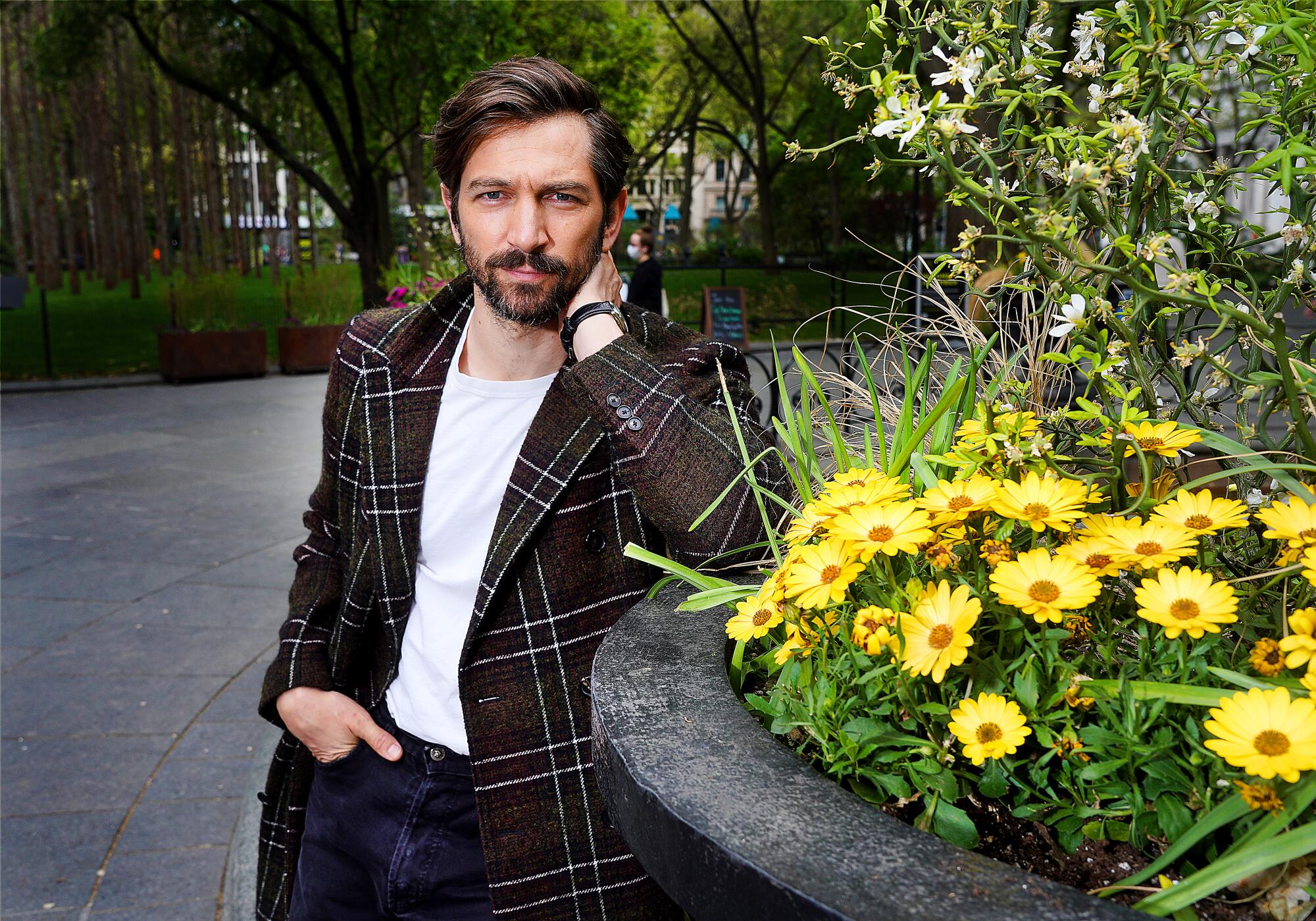
Thede: It only works in that accent, though. If I screamed that at my cast they’re just going to laugh at me.
Thompson: I wanted to ask you, Wanda, where you go for your inspiration for stand-up? When you do a special, where do you go to focus on humanity? Do you go to a diner and look around? Do you ride the train for a week and look around?
Sykes: It depends on the current situation. When I first became a mom, I didn’t really have any place to go. I had to be home. So it was basically looking around my house, practicing standing outside of myself, just observing what I was doing. And just how surreal it was. I never would’ve pictured myself doing the things that I’m doing. Like, yesterday I was in the pet store buying crickets for my sons and my daughters. They got geckos for Christmas. I didn’t know what you had to feed the geckos. So I’m standing there, holding the bag of crickets, and it’s like I heard my ancestors say, “You’ve been around white people too much.”
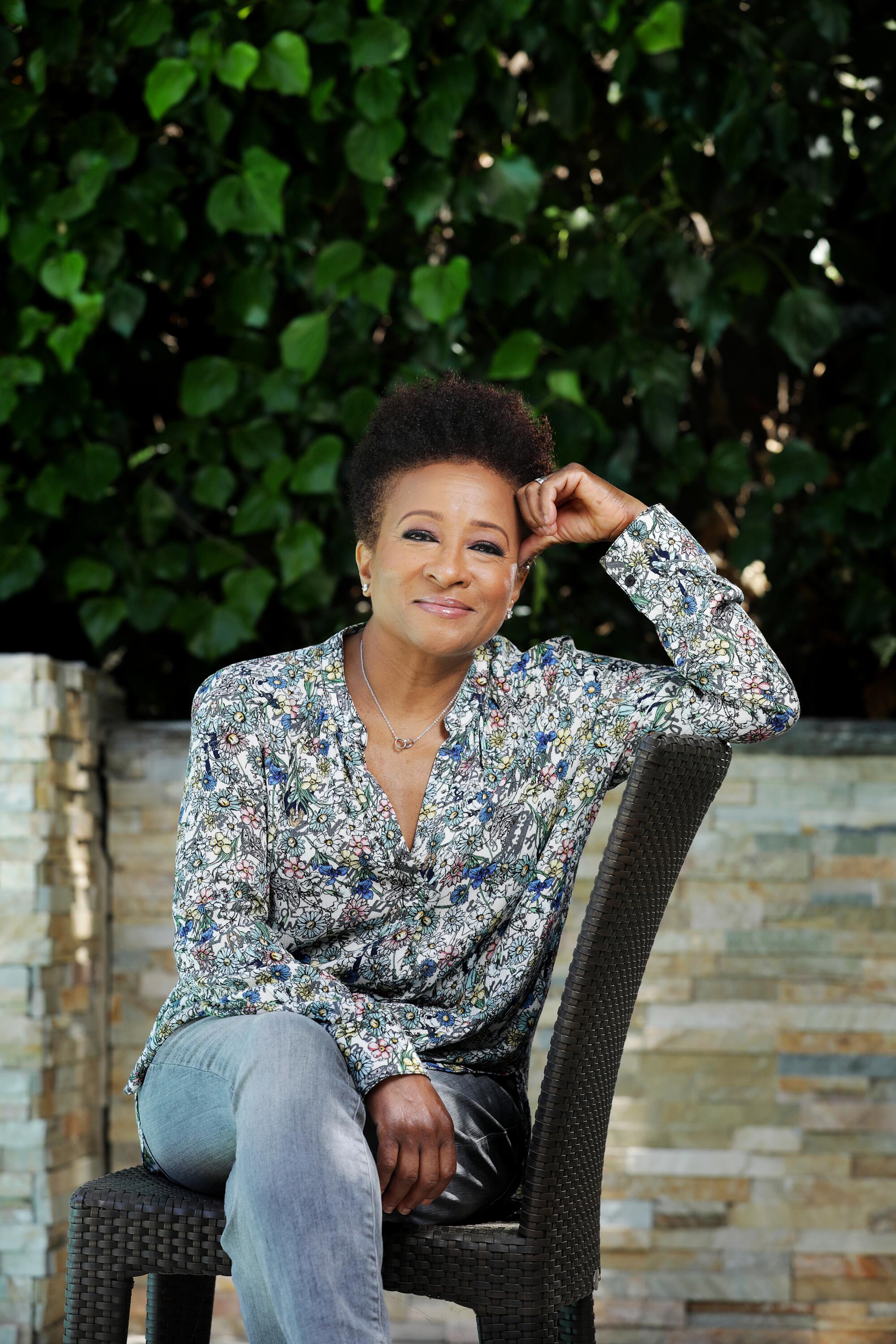
The best comedy always looks so spontaneous, but is it really?
Thompson: Comedy is presented and thought-out. If there’s any kind of gap or questioning, it kind of throws the audience off.
Sykes: Absolutely. The audience is there because they just want to laugh and have a good time. You put the audience at ease. And if you’re standing up there looking like you’re searching for your words or unsure, then it makes the audience uneasy. Then they’re like, “Ooh, she don’t know what she doing. Oh, this isn’t going to be funny.” So, yeah, comedy is just like, keep it moving ... and don’t give them space to boo.
More to Read
From the Oscars to the Emmys.
Get the Envelope newsletter for exclusive awards season coverage, behind-the-scenes stories from the Envelope podcast and columnist Glenn Whipp’s must-read analysis.
You may occasionally receive promotional content from the Los Angeles Times.
